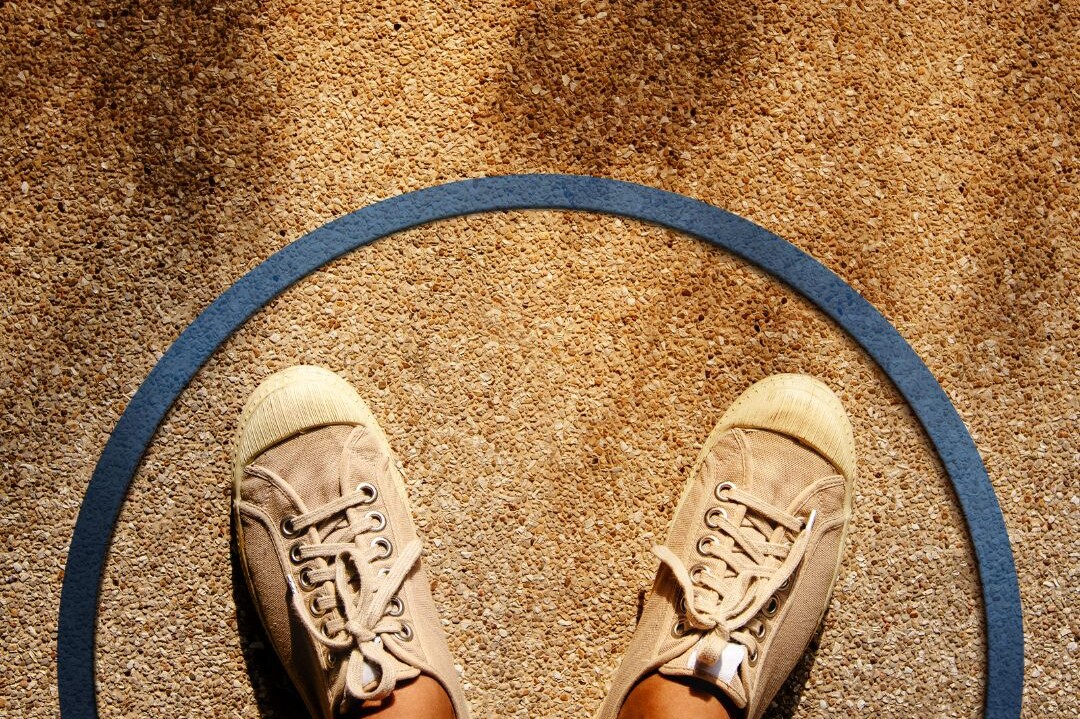Share This Story, Choose Your Platform!
How to Build Better Boundaries
Do people often walk all over you? Do you want to say no but feel you just can’t? Do you feel that others don’t put as much effort into relationships as you do? If these situations feel familiar, it may be time to set clearer boundaries.
Boundaries provide us with a sense of security and inner peace. They help us build balanced, mutual relationships where efforts are reciprocated. This article will explore what boundaries are, why they matter, and how to start building better ones.
What Are Boundaries?
A boundary is an invisible line that separates you from others, helping protect your well-being and individuality. In other words, they are the “rules” you set in relation to other people. Boundaries define how much space people can take up in your life.
If we don’t give people any space in our lives, we may feel lonely and unappreciated. But if we let people take up too much space, we may feel overwhelmed, as though we’re drowning, unable to come up for air.
What Do Boundaries Look Like?
Boundaries fall on a continuum with two extremes. At one end, boundaries can be closed, rigid, and inflexible, like an impenetrable wall. People with rigid boundaries may struggle to compromise, hold a “my way or the highway” mentality, find it hard to forgive, and keep others at a distance.
At the opposite end, boundaries can be open, loose, or even non-existent, like a cup constantly pouring out its contents until empty. People with loose boundaries may find it hard to say no, prioritise others’ needs over their own, and feel the urge to people-please, all of which can leave them emotionally and physically drained.
The healthiest boundaries lie somewhere in the middle. People with clear boundaries recognise their needs, communicate them respectfully, and adapt as necessary. Clear boundaries help us balance our personal space and relationships, ensuring we don’t push others away or let them take over our lives.
What Are the Different Types of Boundaries?
Boundaries vary across different areas of life:
- Physical: Relating to body, privacy, and personal space. E.g., “I prefer handshakes over hugs.”
- Sexual: Involving consent, intimacy, and physical touch. E.g., “I don’t want to rush into things if I’m not ready.”
- Emotional: Reflecting emotional availability. E.g., “I want to work through my feelings before sharing.”
- Material: Defining financial choices and sharing possessions. E.g., “Please ask before using my things.”
- Conversational: Shaping how others may speak to us. E.g., “I’d rather not discuss work right now.”
- Intellectual: Protecting thoughts, values, and opinions. E.g., “I respect your view, but I see it differently.”
- Spiritual: Relating to beliefs, faith, and spiritual practices. E.g., “I prefer to keep my beliefs private.”
- Energy: Managing self-care and where we focus our energy. E.g., “I love spending time together, but I need time to recharge.”
- Time: Determining how we allocate our time. E.g., “I’m available during office hours.”
Why Should We Build Better Boundaries?
Clear boundaries benefit us in many ways:
- Prevent Burnout and Promote Well-being: Overcommitting can leave us feeling stressed and exhausted. Setting clear boundaries helps balance what we do for others and for ourselves, preventing burnout and boosting our overall well-being.
- Foster Healthier Relationships: Clear boundaries encourage open, honest communication, reducing misunderstandings and setting a standard for respect.
- Improve Focus: Boundaries help us prioritise responsibilities, keeping our energy from being scattered and enabling us to focus on what truly matters.
- Enhance Personal Growth: Boundaries teach us about our values and needs, helping us grow and live authentically.
How Do We Build Better Boundaries?
Building better boundaries may feel challenging at first. Here are some steps to get started:
- Identify Your Needs: Take time to reflect on what you truly want and need. Gaining this clarity is essential for setting boundaries.
- Take Small Steps: Change doesn’t happen overnight. Start small and practise regularly to strengthen your boundaries.
- Check Your Body for Signs: Physical cues, like a racing heart or a knot in your stomach, can indicate when your boundaries are being crossed.
- Say “No” When Needed: “No” is a full sentence. If you’re uncomfortable, simply say “no” without feeling the need to explain.
- Use “I” Statements: Express your feelings clearly. E.g., “I’m still feeling sad and would rather not talk about it right now.”
- Stand Your Ground: Not everyone will accept your boundaries, especially if they have a tendency to overstep. Be assertive and firm in upholding them.
- Clarify Consequences with “If… then” Statements: Let others know the outcome if they disregard your boundaries. E.g., “If you yell, I won’t talk to you until you speak calmly.”
What Have We Learned?
Boundaries are the guidelines we set around giving and receiving in relationships. Clear boundaries help us maintain our well-being and build healthy relationships. Although it takes time and practice, building better boundaries ensures that our needs and values are respected in all aspects of life.
Author: Audre Crafford

References
Durham, S. (2021, September 23). How to Recognise Personal Boundaries. The South African College of Applied Psychology. https://www.sacap.edu.za/blog/applied-psychology/personal-boundaries/?gad_source=1&gclid=Cj0KCQjwpvK4BhDUARIsADHt9sT8i01tRppgFDZ1kPKwALvadm9oG8Img7xeP2JTGg2Lyx2mwBNjhMsaAiuOEALw_wcB
How Can I Set Boundaries in My Relationship? (2023, July, 1). Kansas City Relationship Institute. https://kcrelationshipinstitute.com/how-can-i-set-boundaries-in-my-relationship/
Magee, H. P. (2024, June 4). Setting Boundaries With Others. The Gottman Institute. https://www.gottman.com/blog/setting-boundaries-with-others/
Setting Boundaries. (2024, February 25). WebMD. https://www.webmd.com/mental-health/setting-boundaries
White-Gibson, Z. (2022, October 30). Creating and Maintaining Boundaries During Holidays. Healthline. https://www.healthline.com/health/gift-guide-creating-and-maintaining-boundaries-during-holidays#What-are-boundaries


